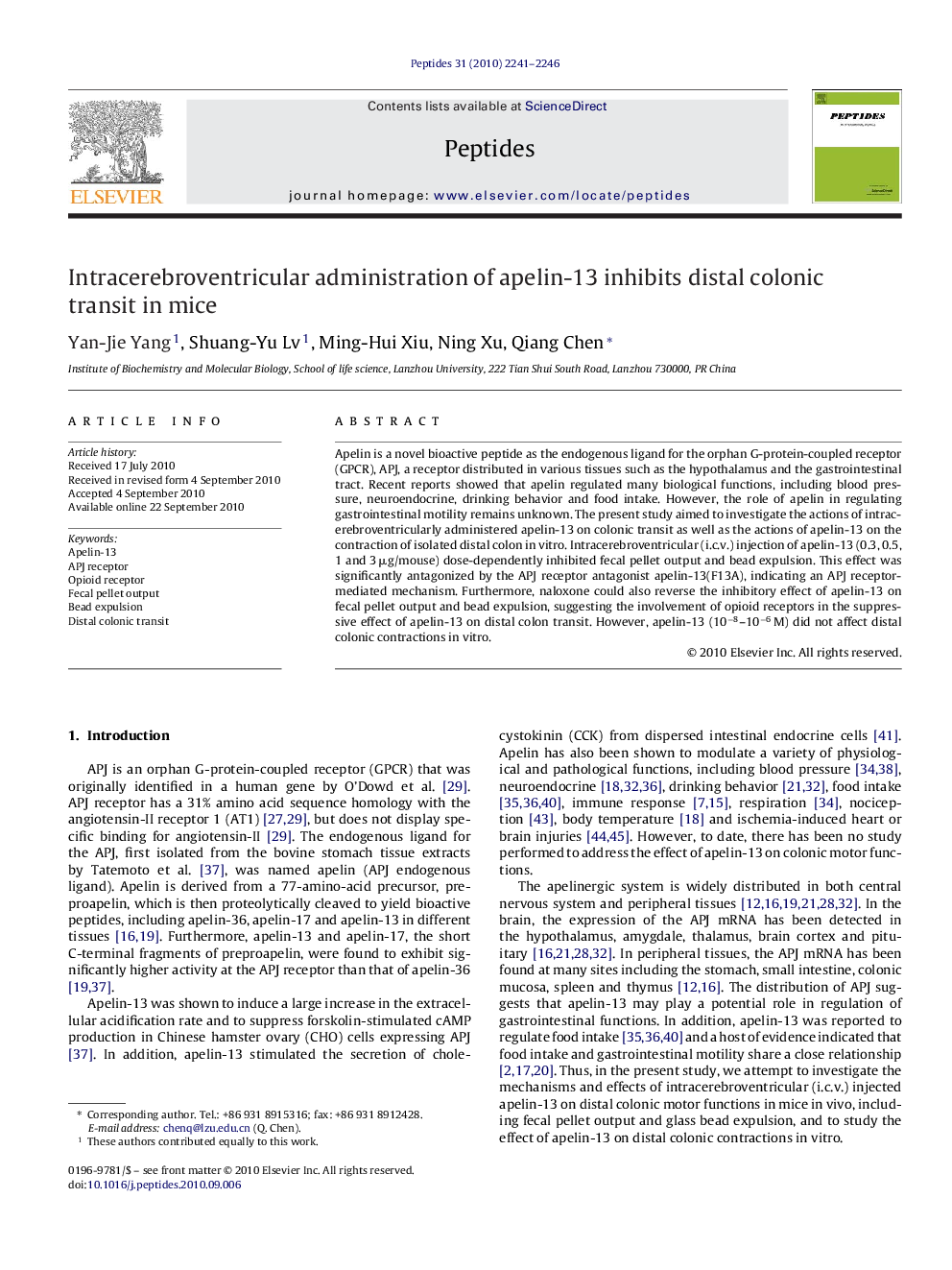| Article ID | Journal | Published Year | Pages | File Type |
|---|---|---|---|---|
| 2006691 | Peptides | 2010 | 6 Pages |
Apelin is a novel bioactive peptide as the endogenous ligand for the orphan G-protein-coupled receptor (GPCR), APJ, a receptor distributed in various tissues such as the hypothalamus and the gastrointestinal tract. Recent reports showed that apelin regulated many biological functions, including blood pressure, neuroendocrine, drinking behavior and food intake. However, the role of apelin in regulating gastrointestinal motility remains unknown. The present study aimed to investigate the actions of intracerebroventricularly administered apelin-13 on colonic transit as well as the actions of apelin-13 on the contraction of isolated distal colon in vitro. Intracerebroventricular (i.c.v.) injection of apelin-13 (0.3, 0.5, 1 and 3 μg/mouse) dose-dependently inhibited fecal pellet output and bead expulsion. This effect was significantly antagonized by the APJ receptor antagonist apelin-13(F13A), indicating an APJ receptor-mediated mechanism. Furthermore, naloxone could also reverse the inhibitory effect of apelin-13 on fecal pellet output and bead expulsion, suggesting the involvement of opioid receptors in the suppressive effect of apelin-13 on distal colon transit. However, apelin-13 (10−8–10−6 M) did not affect distal colonic contractions in vitro.
Research highlights▶ Apelin-13 dose-dependently inhibits fecal pellet output and bead expulsion in mice. ▶ Apelin-13 inhibits distal colonic transit through the activation of APJ receptors. ▶ Opioid receptors are involved in apelin-13-induced suppression of distal colon transit. ▶ In vitro, apelin-13 has no effect on distal colonic contractions.
